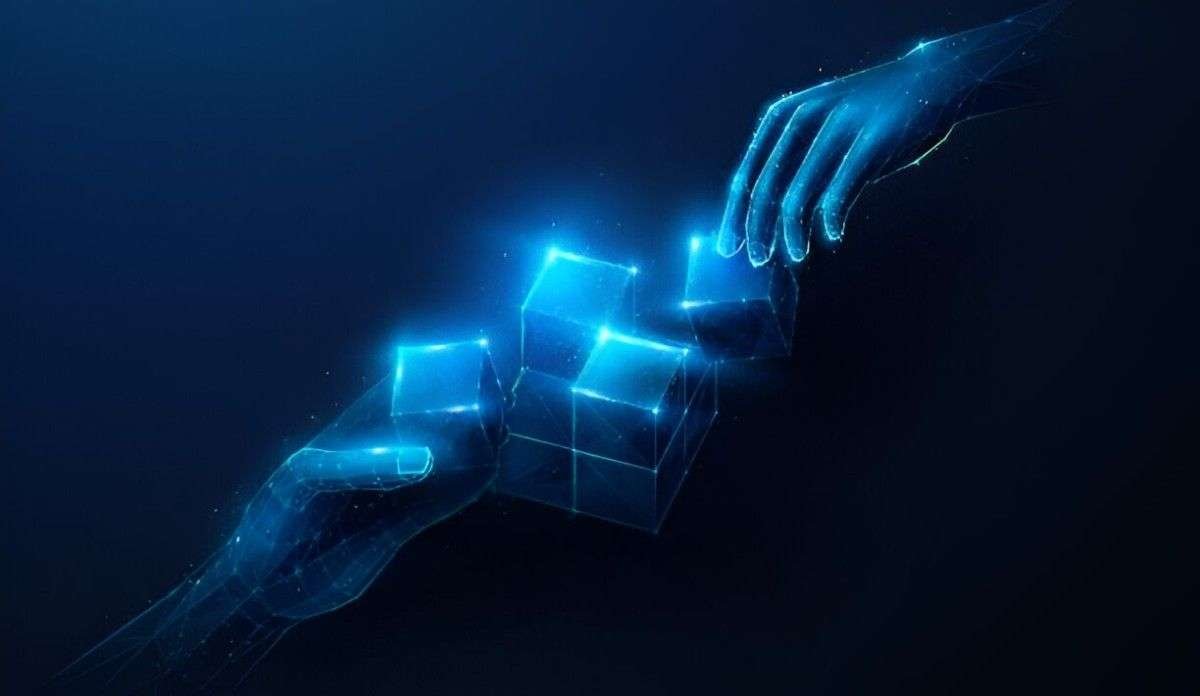In the world of gaming, few names command the kind of attention that Activision Blizzard does. Known for iconic franchises such as Call of Duty, World of Warcraft, and Overwatch, Activision Blizzard has built an empire within the entertainment industry. Recently, however, the company has begun to explore a revolutionary technology that has the potential to disrupt the entire gaming ecosystem: blockchain. As someone who has spent years analyzing emerging technologies, I have seen firsthand the impact blockchain is having across industries. In this article, I will delve into what Activision Blizzard’s involvement in blockchain means for the future of gaming, the challenges it presents, and the opportunities it unlocks.
Table of Contents
What is Blockchain and Why Does It Matter for Gaming?
Before diving into Activision Blizzard’s blockchain strategies, let’s quickly define blockchain. At its core, blockchain is a decentralized and distributed digital ledger that records transactions across many computers in a way that makes it impossible to alter or hack. Each “block” of data is securely linked to the next, forming a chain. The power of blockchain lies in its transparency, security, and ability to facilitate peer-to-peer transactions without the need for intermediaries.
So, what does this have to do with gaming? For decades, the gaming industry has operated in a centralized manner. Game developers control everything from game distribution to in-game transactions. However, blockchain offers the possibility of decentralizing key aspects of gaming, from ownership to microtransactions, in a way that benefits both developers and players.
Activision Blizzard’s Blockchain foray
Activision Blizzard’s exploration of blockchain isn’t an isolated event. As the gaming industry becomes more digital and interconnected, many major players are looking into blockchain as a way to evolve. But what sets Activision Blizzard apart from others is its sheer scale and influence within the industry.
I have been following the company’s moves over the past few years, and I can confidently say that Activision Blizzard is taking a strategic, cautious approach when it comes to blockchain integration. The company has not rushed into blockchain adoption. Instead, it has been conducting research and collaborating with blockchain companies to better understand the potential benefits for both players and the company itself.
In 2022, Activision Blizzard made headlines by applying for a patent related to blockchain technology. The patent, titled “System and Method for Managing In-Game Assets Using Blockchain,” hints at the company’s interest in leveraging blockchain to manage in-game items, digital currencies, and possibly even NFTs (non-fungible tokens). The patent outlines a system in which players can buy, sell, and trade in-game assets on a blockchain-based marketplace, providing them with true ownership over their items.
But why is Activision Blizzard showing interest in blockchain? Let’s break it down.
Opportunities for Activision Blizzard in Blockchain
- True Ownership of Digital Assets: One of the primary benefits of blockchain technology is the ability to grant players true ownership of in-game assets. Today, when you purchase in-game items or skins, you don’t actually own them. They are licensed to you by the game developer. Blockchain, on the other hand, can create verifiable, transferable ownership of these assets. This means that players can buy, sell, or trade items on third-party platforms, potentially generating real-world value.Consider this: Imagine you spent years collecting rare skins in Call of Duty. With blockchain, you could sell or trade these skins to other players, turning your digital assets into real-world value. This is a game-changer for players, as it adds a layer of financial investment into their gaming experience.
- Monetizing Digital Assets Through NFTs: Non-fungible tokens (NFTs) are unique digital assets that can represent anything from art to in-game items. For Activision Blizzard, NFTs could become a new revenue stream. By tokenizing rare in-game items, the company can create an entirely new marketplace where players can buy, sell, and trade these items as NFTs. This could bring significant profits, especially for a company with the scale and popularity of Activision Blizzard.Take a look at this example: A World of Warcraft sword with a unique design could be tokenized as an NFT. Players could then trade or sell the sword on an open marketplace, with the blockchain ensuring that ownership is tracked and verified. Activision Blizzard could take a percentage of each transaction, generating an ongoing stream of revenue.
- Decentralized Game Economy: Blockchain could enable Activision Blizzard to build decentralized game economies, where players can influence the in-game economy by creating and trading assets. This could result in a more dynamic and player-driven ecosystem. For example, in-game currency could be decentralized, and players could have a say in how the economy functions.
- Improved Transparency and Anti-Cheating Mechanisms: One of the challenges facing modern gaming is cheating and fraud. Blockchain could address these issues by making it easier to verify player actions, item ownership, and in-game transactions. Blockchain’s transparency could provide more security for both players and developers, ensuring that cheating and fraud are minimized.
- Cross-Platform Play and Interoperability: Blockchain’s ability to enable cross-platform interoperability is another key advantage. With blockchain, players could carry their digital assets from one game to another. For instance, you could take an item or skin from Call of Duty and use it in Overwatch or Diablo, if the games are integrated with a shared blockchain network. This would create a seamless gaming experience across multiple titles, something that is not possible with the current centralized systems.
Challenges of Implementing Blockchain in Gaming
While the potential benefits of blockchain in gaming are clear, it’s important to consider the challenges as well. Activision Blizzard is a major player in the gaming industry, and its decisions will have a significant impact on how blockchain is integrated into games going forward.
- Scalability Issues: Blockchain networks, especially those dealing with NFTs, often struggle with scalability. The current infrastructure is not always capable of handling the high volume of transactions required by large-scale games. This could lead to slower transaction times and higher fees, which would negatively impact the user experience.
- Environmental Impact: One of the major criticisms of blockchain, particularly Ethereum-based NFTs, is the environmental impact. The process of minting and transferring NFTs consumes a significant amount of energy. Activision Blizzard, as a major corporation, would need to consider the environmental implications of integrating blockchain and NFTs into its games, especially as it continues to push for sustainability in other areas of its business.
- Regulatory Concerns: As blockchain and cryptocurrencies evolve, regulatory bodies are beginning to take a closer look at the industry. Activision Blizzard would need to navigate the complex legal landscape surrounding blockchain, particularly in relation to NFTs, digital currencies, and the potential for gambling elements in games.
- Player Reception: Blockchain in gaming is still a controversial topic. While some players are excited about the idea of true ownership and the potential to profit from in-game assets, others view it as a cash grab that could negatively impact the gaming experience. Activision Blizzard would need to carefully consider player feedback and ensure that any blockchain-based systems are implemented in a way that enhances, rather than detracts from, the player experience.
The Future of Blockchain in Gaming: What’s Next for Activision Blizzard?
Looking ahead, Activision Blizzard’s blockchain strategy will likely evolve in response to the broader industry trends. It’s clear that blockchain has the potential to revolutionize gaming, but it’s not without its hurdles. As the company continues to explore blockchain, it will need to address issues of scalability, environmental impact, and regulatory compliance while also ensuring that its players have a positive experience.
I believe that Activision Blizzard will take a cautious but strategic approach, testing blockchain integration in smaller-scale projects before fully committing to large-scale adoption. The company has a history of innovating within the gaming space, and I expect it will continue to lead the way in the exploration of new technologies.
Conclusion
Activision Blizzard’s exploration of blockchain technology is an exciting development in the world of gaming. The potential for true ownership of in-game assets, the creation of decentralized game economies, and the introduction of NFTs could fundamentally change how players interact with games. However, the road ahead is not without its challenges. The company will need to address scalability issues, environmental concerns, and player reception while navigating the complex legal and regulatory landscape surrounding blockchain. In the end, blockchain could unlock new opportunities for both developers and players, but it will take careful planning and execution to fully realize its potential.
As someone who has been closely following the evolution of both blockchain and gaming, I am excited to see where this journey leads. The future of gaming is undoubtedly digital, and blockchain will play a significant role in shaping that future. Activision Blizzard is positioning itself at the forefront of this revolution, and I am eager to see how it continues to innovate and push the boundaries of what is possible in gaming.





